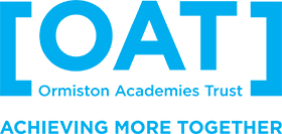About the review
A review of training and development provision in schools and in initial teacher education, published by NALDIC.
Increasing numbers of EAL-bilingual pupils, funding cuts and lack of specific guidance and initiatives, together with research and evidence from surveys of practice, clearly show that there is a real and pressing need for adequate and appropriate training for school based staff, especially in meeting the needs of children and young people who are new to English.
Since the publication of the original audit of 2009, changes in the educational landscape have impacted on central and local government funding mechanisms with respect to EAL and EMA (Ethnic Minority Achievement). As a result, local specialist sources of support and training are no longer guaranteed in many areas of the country. This has implications for the learning, inclusion and achievement of EAL learners.
In 2014, as part of its partnership with the Bell Foundation, NALDIC undertook a second national audit of EAL training and professional development provision.
Key findings include:
- EAL CPD and vocational training remains patchy, despite the increase in the numbers of EAL pupils since 2004.
- There is a high level of variation between the training available to staff in different Local Authorities and regions, and limited differentiated training for groups of staff at different stages of their careers.
- High quality, relevant continued professional development and vocational training on EAL for mainstream and specialist staff across the school workforce is not yet consistently accessible nationally.
- Only 31% of training offered was sustained over a term or longer and only 12% was accredited.
Recommendations from the NALDIC audit:
- (Re-) introduction of teacher training at all levels, from initial to more advanced and specialised EAL professional development.
- Differentiated training, enabling teachers to respond to learners’ language learning needs and diverse contexts of learning.
- Wider availability of and access to training for teachers and other educational practitioners.
- More opportunities for accredited training to encourage teachers to develop a professional specialism in EAL.
- Greater public scrutiny of the educational claims and quality of training programmes.
Further findings are presented in the full national audit. For more information please contact enquiries@naldic.org.uk
